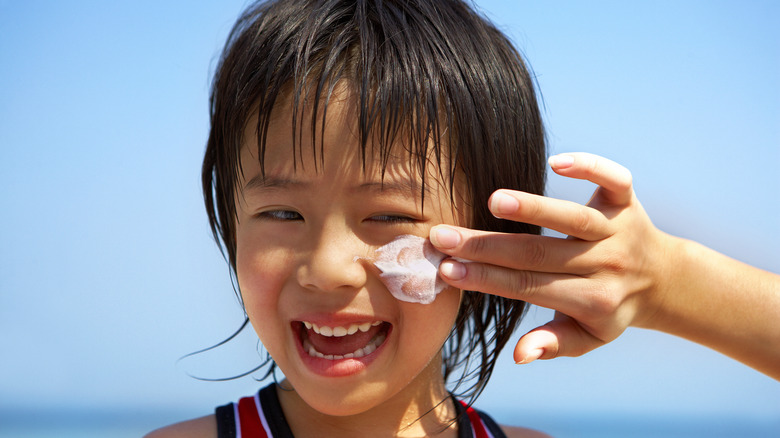A Dermatologist Shares 3 Lifestyle Modifications That Can Help Prevent Skin Cancer
Everyone loves to have fun in the sun. We are often told that time outdoors is good for our well-being and that taking in the sun helps us get vitamin D, which keeps our bones healthy. In an exclusive interview, Health Digest spoke with David J. Leffell, MD, professor of dermatology at Yale, an expert in skin cancer and melanoma, and author of "Total Skin: The Definitive Guide to Whole Skin Care for Life" to learn more about skin cancer.
According to Dr. Leffell, there are two categories of common skin cancers — melanoma and non-melanoma. "Non-melanoma skin cancer includes basal cell cancer and squamous cell cancer," he explains. "Those typically develop as a sore on the skin that tends to heal up and recur. Often, basal cell cancer has a pearly appearance to it but it can also look like a spot of eczema or a rash."
The other category of skin cancer, Dr. Leffell explains, is melanoma. "Melanoma typically appears as a changing mole, an area of pigmentation that is irregular, has a border that is irregular, or itches or bleeds," he says. " There are many non-cancerous lesions that may appear concerning so if you notice something that doesn't seem right don't panic but also don't delay." A proper evaluation from a physician or healthcare provider can lead to an earlier diagnosis of skin cancer, which can lead to a better outcome.
Tips to prevent skin cancer
Dr. Leffell notes that skin cancer is mainly caused by exposure to ultraviolet (UV) radiation from the sun, although tanning booths emit this radiation as well. The best way to prevent skin cancer is to reduce exposure. "Avoiding the sun during peak hours, and wearing sunscreen and a hat routinely has been proven to make a difference. Sun protective clothing is also helpful if you are outdoors in strong sun for extended periods," says Dr. Leffell.
Getting to know your skin is important. Be aware of new growths that cause symptoms like itching. "While people who have light colored eyes (blue, gray, green), fair skin and/or light-colored hair are most at risk, anyone can get skin cancer," Dr. Leffell states. "Dark complexions don't provide a 'pass'. In addition, those with a family history of skin cancer have an increased risk of developing skin cancer. While we can't change those risk factors, we can reduce exposure to UV radiation."
Dr. Leffell concludes by emphasizing the importance of utilizing the information we have about skin cancer. "We unfortunately don't know the actual cause of many other cancers, but since we know how skin cancer develops in most cases, reducing UV exposure is definitely a strategy people should embrace," says Dr. Leffell. "At the same time common sense is important: enjoy the outdoors but take the precautions mentioned above and don't use tanning parlors under any circumstances."


